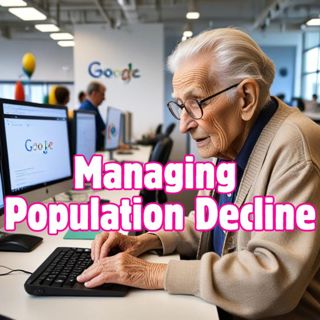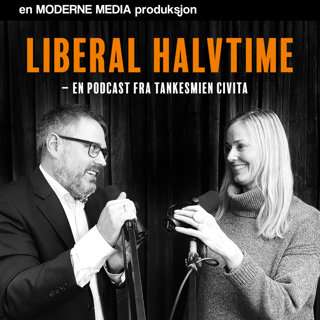
1 in 20 Deaths: Inside Canada’s Assisted Dying System - Dr. Ramona Coelho
Canada’s MAiD program has expanded rapidly—Dr. Ramona Coelho argues the system increasingly serves vulnerable people, with uneven safeguards and serious ethical, legal, and social risks. Guest bio: Dr...
24 Feb 1h

The Eavesdropper Economy: How Surveillance Built AI (E186)
A lively tour from Cold War “The Thing” to today’s surveillance capitalism—showing how audio capture, too much data, and automation pressures helped turn listening into AI.Guest bios:Dr. Toby Heys — P...
18 Feb 1h

Managerial Class Ruined Tech (E185) - Darryl Campbell
A former Silicon Valley insider explains how MBA-style “spreadsheet management” is breaking software—and why it’s making tech, AI, and everyday products worse.Guest bio:Darryl Campbell is a former tec...
10 Feb 1h 13min

55% of MIT Faculty Self-Censor — Here’s Why (E184)
MIT Free Speech Alliance president Wayne Stargardt explains how a few high-profile cancellations can drive widespread faculty self-censorship—even at a STEM powerhouse like MIT.Guest bio:Wayne Stargar...
5 Feb 52min

E183: Why Corporate America Will Never De-Woke | Law Prof Explains
In this episode, Jesse talks with Fordham University School of Law corporate-law professor Sean J. Griffith about why “go woke, go broke” hasn’t really played out—and why big, publicly traded firms ca...
3 Feb 59min

E181: Politics Is the Best Predictor of Academic Research — Prof Mark Horowitz
Political beliefs often matter more than data or methods in shaping how social scientists think about controversial issues. In this episode, sociologist Dr. Mark Horowitz explains why many professors ...
27 Jan 1h 8min

E180: Attraction & Disgust: Evolutionary Psychology Explained (Dr. Deb Lieberman)
Evolutionary psychologist Debra Lieberman explains how “disgust” and other built-in mental programs shape attraction, kinship, morality, and even law—while modern technology and social media scramble ...
20 Jan 1h 3min

E179: Breaking the Gerontocracy: How Amanda Litman Is Getting Young People into Office
Amanda Litman argues U.S. leadership is too old, local races are dangerously uncontested, and the fastest fix is getting more young people to run—backed by better pay and campaign-finance reform.Guest...
16 Jan 50min






















